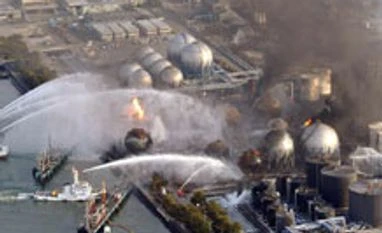Unlike the US and some European countries, Japan has never decommissioned a full-fledged reactor. Now it must do so at the Fukushima Dai-Ichi plant. Three of its six reactors melted down after the 2011 earthquake and tsunami, making what is ordinarily a technically challenging operation even more complex.
The cloud over Japan's capacity to get the decades-long job done has further undermined the image of the nuclear industry with the public. Opinion surveys show a majority of Japanese are opposed to restarting 50 reactors that were put offline for safety and other checks in the aftermath of the disaster.
More From This Section
Japan has been forced to import oil and gas to meet its power needs, burdening its already feeble economy.
"Even for the US nuclear industry, such a cleanup and decommissioning would be a great challenge," said Akira Tokuhiro, a University of Idaho professor of mechanical and nuclear engineering who is among those calling for a larger international role at Fukushima.
Decommissioning a nuclear power plant normally involves first bringing the reactor cores to stable shutdown, and then eventually removing them for long-term storage. It is a process that takes years. Throughout, radiation levels and worker exposure must be monitored.
At Fukushima, there is the daunting challenge of taking out cores that suffered meltdown, which is the most dangerous type of nuclear power accident. Their exact location within the reactor units isn't known and needs to be ascertained so their condition can be analyzed. That will require development of nimble robots capable of withstanding high radiation.
The lack of experts is worse at the regulatory level. The tally is zero. Japan's Nuclear Regulation Authority has no one devoted to decommissioning, said spokesman Juntaro Yamada, though it has experts dealing with the ongoing removal of fuel rods from one of the Fukushima reactor units.
Its predecessor organization was criticized after the Fukushima disaster for being too close to the nuclear industry, so the members chosen for the new agency launched last year don't have direct ties to the industry to ensure their objectivity.
The government-funded Nuclear Energy Safety Organization, which is to be folded into the regulatory authority to beef up its expertise, has one expert on decommissioning, a person who studies overseas regulations on the process.
)